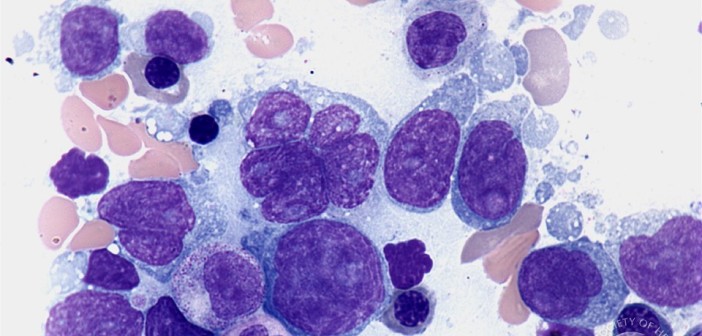This post was written by Janelle Weaver, PhD, a freelance writer
Lymphoma is the most common blood cancer in the United States and is responsible for about 20,000 deaths each year. This type of cancer begins in white blood cells called lymphocytes, which normally play an important role in the immune system by recognizing and responding to pathogens such as bacteria and viruses. To control infections, these cells must multiply in a process that depends on a protein called MALT1. But when inappropriately activated, MALT1 drives the survival of lymphoma cells, underscoring the need to monitor the activity of this protein to develop novel diagnostic tests and facilitate drug discovery. Continue reading “Targeting protein could improve diagnosis and treatment of lymphoma”
